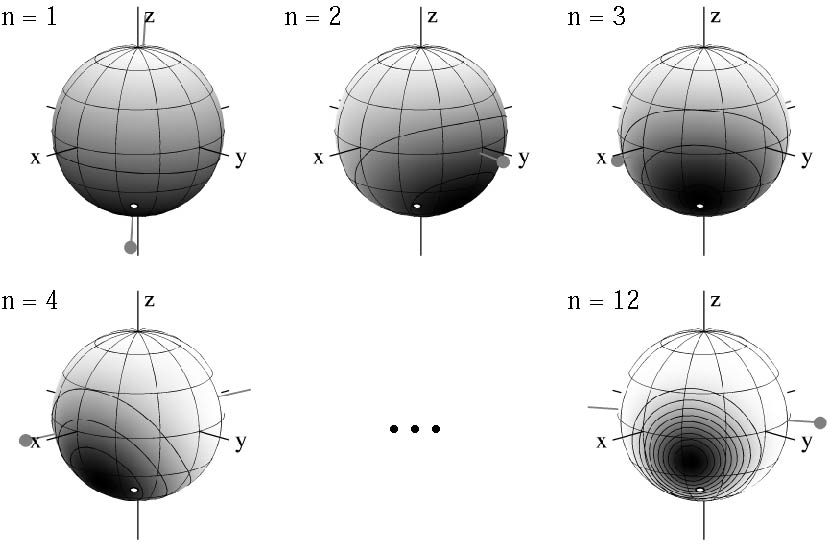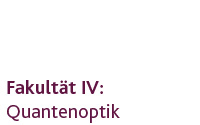Adaptive state estimation
References: [QIS14, QIS6]
The concept of a state is a central ingredient of quantum theory, and the estimation of the state of a quantum system is of fundamental and practical importance. We have implemented a self-learning strategy for state estimation of the hyperfine qubit of Yb+. In this context, arbitrary single qubit gates have been demonstrated with high precision and very long coherence times. We have also implemented and characterized prototypes of different quantum channels. This will allow for the systematic investigation of the impact of imperfections and decoherence on QIP, for instance, on the performance of error correcting codes.

A sequence of N = 12 adaptive measurements carried out on identically prepared qubits in order to estimate their state (|q=3/4p; f=1/4p>, marked by a white solid circle.) The probability density w(q;f) (with q and f the polar and azimuthal angle, respectively, on the Bloch sphere) is gray scale coded on the surface of the Bloch sphere (the gray scale code is different for each measurement.) In addition, contour lines indicate where wn takes on the values 0:1; 0:2; : : :. A gray straight line through each Bloch sphere shows the measurement direction and the filled gray circle indicates the measurement outcome. The fidelity of state estimation of this particular run is 94.9%.
